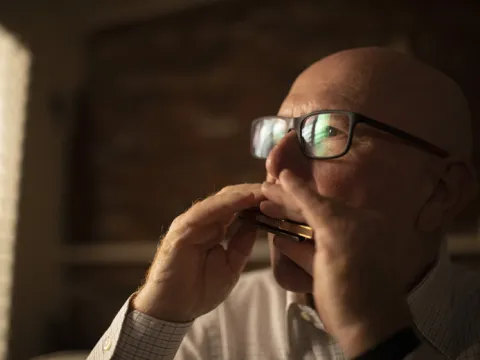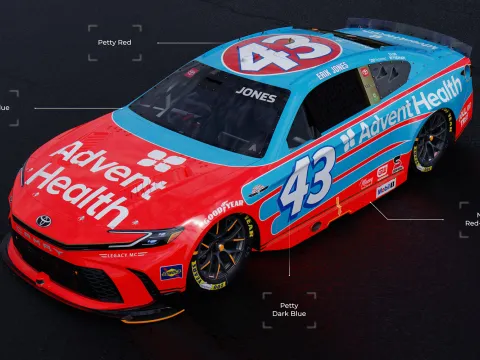- AdventHealth

It's no secret that music can lift your spirits and put you in the right mindset. But there's also much more to music than meets the ear. Medically, music therapy is used in hospitals to help patients of all ages overcome many different obstacles.
The smallest patients in the neonatal intensive care unit (NICU) have visits from music therapists who use a technique called multimodal stimulation. Paired with live lullaby music, this therapy helps increase premature infants' tolerance to stimulation. This simple (and enjoyable!) intervention allows our babies to leave the hospital an average of 13 days sooner.
For older patients with Alzheimer's disease or dementia, music therapists work with them to sing and remember song lyrics often associated with a particular memory. Interestingly, music memory is stored in a part of the brain that's one of the last areas affected by this disease.
Music therapy isn't just for patients facing serious diagnoses or procedures. Music can promote inner peace and allow us to connect with our body, mind and spirit. Research has shown that music therapy can help individuals cope with anxiety, stress and fear of hospitals or procedures. It can even eliminate the need for sedation for routine tests such as electroencephalography (EEG) or a computed tomography (CT) scan.
Music Helps Our Whole Health
Even the healthiest of us can benefit from adding more music to our lives. Music has powerful benefits for our whole health, including:
- Improved memory
- Improved mood
- More enjoyable (and effective) exercise
- Reduce pain
- Reduced stress and anxiety
Bring More Music Into Your Day
Now that you know just how powerful music can be for your health, here are a few simple ways you can enjoy it every day.
Listen to What Makes You Happy
Play your favorite artist or song on repeat and before you know it, your feet will be tapping along to the beat and a smile will creep across your face.
Meditate With Music
When you're looking for something a little more calming, find a quiet spot and turn on some relaxing music. Again, it's whatever is relaxing to you. It can be classical music, a favorite slow song, or even sounds of nature. Sit quietly, enjoy the music and focus on your breathing. This moment of meditation can help quiet your mind and calm your nerves.
Look for New Ways to Enjoy Music
Join a community band, a local choir or drum circle. Not only will you have the chance to enjoy music — and all its benefits — but you'll also forge new friendships with those who have similar interests. After all, your social health is as important as how strong your body, mind and spirit feel.
Let Music Take You Somewhere New
Listen to music that uses guided imagery to help you relax. These moments lead you through a script that takes you someplace else; to the beach where you sit on the sand and listen to the waves crash around you; a lush forest where you can see, hear and feel the grass, animals and trees. This imagery helps you reconnect with nature and reduce your stress to gain a renewed focus for the rest of the day.
Try Progressive Muscle Relaxation
Progressive muscle relaxation can bring a sense of deep calm during times of high stress. When listening to music, tense up certain body parts and then release that tension, giving an overall feeling of relaxation. Start with your toes and then move to the calf muscles, upper leg, abdominal muscles, chest, arms, fingers, neck, and finally, your face.
Music Therapy for Everyone
Whether you want to promote healing from a diagnosed medical condition or just focus on your whole health, music therapy can support your body, mind and spirit.
|
This material is intended for informational purposes only and is not a substitute for examination, diagnosis and medical care provided by a licensed and qualified health professional. Please consult your physician before undertaking any form of medical treatment and/or adopting any exercise program or dietary guidelines. If you think you may have a medical emergency, call 911 immediately. |


